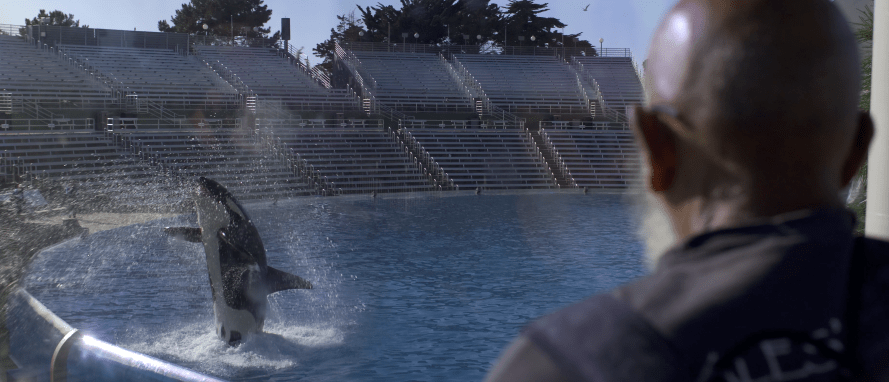
Albert López, Ulisses’ trainer, watches the orca jump. Photo: Joan Bover.
As a child, the documentary maker Joan Bover used to go to the Barcelona Zoo. His favorite animal was ‘Snowflake’, the famous pink-skinned albino gorilla. But he also enjoyed the orca ‘Ulisses’, the other star that entertained everyone from the water and that had been captured in November 1980 in Icelandic waters. Time passed and Bover became a filmmaker. And this story, somehow, accompanied him throughout his life. So much so that he was able to film it and make a film that is nominated for the Goya Award for Best Documentary Short Film 2022.
Born in Vic (Barcelona) in 1980, Bover has lived in Mallorca since 2011, where he directs the IB3 TV cultural program “Els Entusiastes”. He has also made video clips and the short film “Kyoko” with Marcos Cabotá, a documentary that was nominated for the Goya Awards but in 2019.
Why was he interested in telling the story of Ulisses?
In 2009, already working in television, they sent me to do a report on whale watching in the wild on the Costa Brava. The captain of the boat that made the excursions was Albert López, who was Ulisses’ coach during the 11 years he was in Barcelona. He did the report and I did not give it more importance. Until in 2019 I saw the news that it was 25 years since the transfer of the orca Ulisses from Barcelona to Sea World in San Diego. I saw that there could be an interesting story. I still had contact with Albert, I called him and suggested that he go to the United States to meet up with Ulisses 25 years later. He said yes, almost without thinking.
The film is about an orca in captivity. Was your goal to tell about this particular situation or was it another?
At first, I was interested in explaining Albert’s relationship with the orca Ulisses and if they would recognize each other 25 years later. But the film ended up becoming a reflection on how we treat other living beings. There is a quote from the poet Joan Maragall and that Albert always has in mind, which reads: “We are nature feeling itself”. In other words, human beings are also part of nature, although sometimes we seem to forget.
The other character in the film is Albert, his caretaker. How can you define that link?
Albert has been a trainer for killer whales and dolphins for 30 years. Therefore, he is a person who has directly participated in the captivity. But he has become an activist for animal rights. The fact that Albert has seen all aspects of captivity makes his testimony about the freedom of animals have a special force.
Does he know what Ulisses’ current life is like?
He is still the largest captive killer whale in the world. 41 years after he was captured, he is still hanging around in a pool. His life hasn’t changed much in all this time. And once a week he does a show open to the public.
The film has won the award for best short film of the Balearic Islands in Evolution! Mallorca International Film Festival. How do you analyze the current situation of cinema on the islands?
The cinema in the Balearic Islands has a lot of talent and very little industry. I know excellent filmmakers, some of them friends of mine, but they have serious difficulties when it comes to properly financing their projects. There are people like Marcos Cabotá, Miguel Eek or Antonina Obrador, who are doing projects that have given, given or will go around the world, and they do it with very few means. And I know it seems like the usual complaint, but without aid at the level of countries like France or Germany, it is very difficult to compete in international festivals.
When and under what circumstances did you realize that you wanted to be a filmmaker?
I have a lot of respect for the word filmmaker. In fact, I have talked about it many times with other colleagues and I do not consider myself a filmmaker. I am a director, mainly of television programs and I like to think that I am also a documentary filmmaker. But, returning to your question, from a very young age, I have always been interested in telling stories and the cinema is a magnificent channel to do so.
Who have you trained with?
I have learned from different filmmakers with whom I have collaborated on a project, such as my friend Marcos Cabotá, whom I just mentioned. His talent and open-mindedness have made me better at what I do. And, above all, I have been trained by watching movies. My great reference is, without a doubt, Werner Herzog, and especially his documentaries, which showed me the path of what I wanted to do and how I wanted to do it.
What does it mean to you that Ulisses is nominated for the Goya Awards?
Reaching the candidacy for the Goya Awards is quite an odyssey! It must be borne in mind that many short films are made every year, and of increasing quality. First you have to make a good film, get it selected from a list of qualifying festivals for the Goya, win certain awards and, finally, have a selection committee made up of former winners and academics choose it from this short list. So although it sounds like a cliché, getting here is a prize.
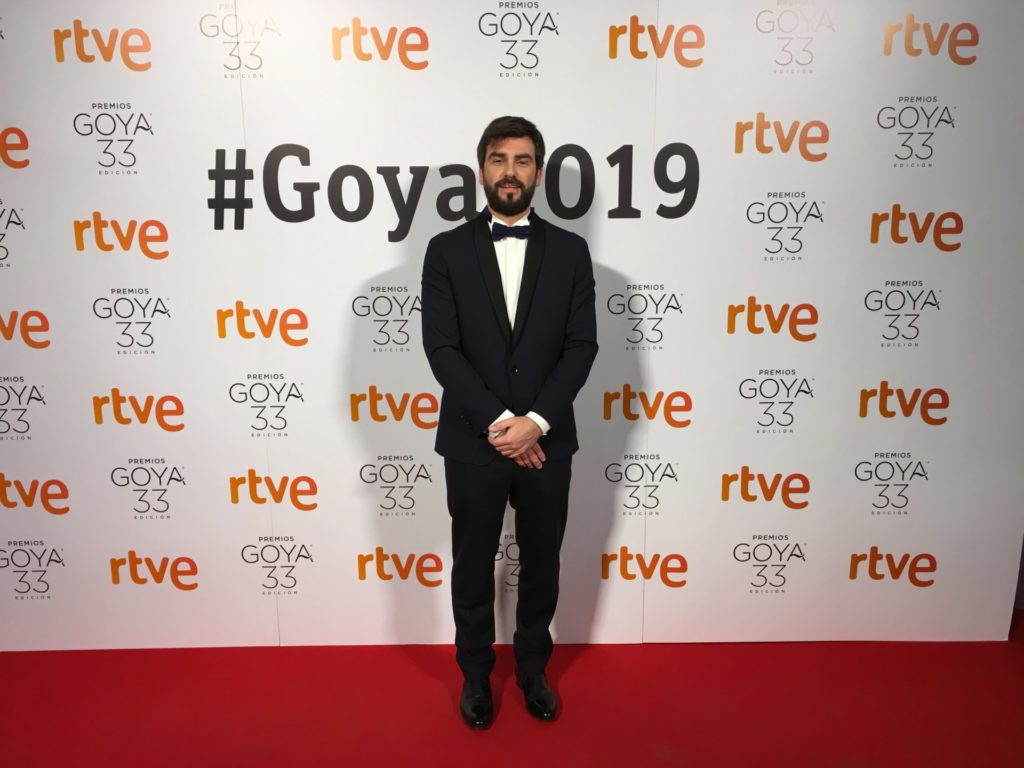
Joan Bover, at the Goya Awards 2019. Photo: Courtesy Joan Bover.

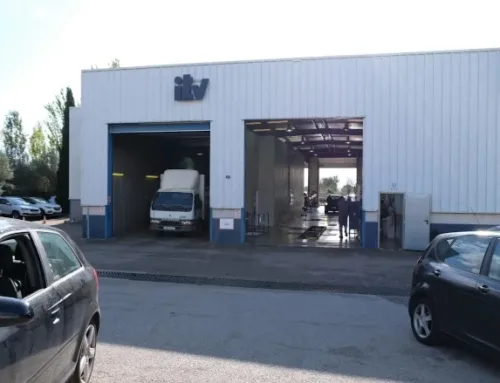
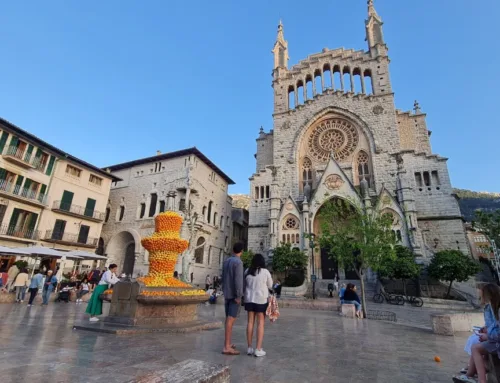
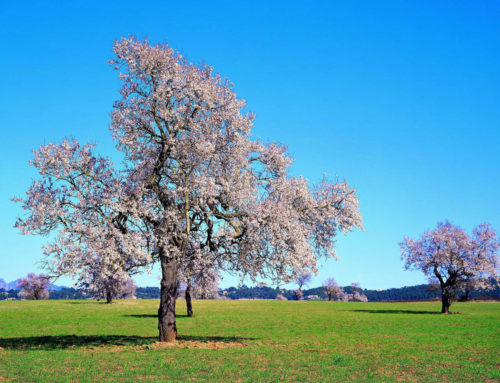
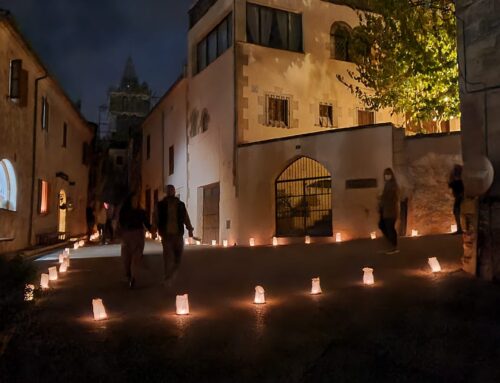
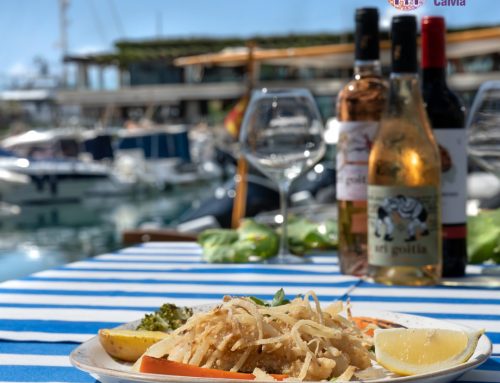

Leave A Comment